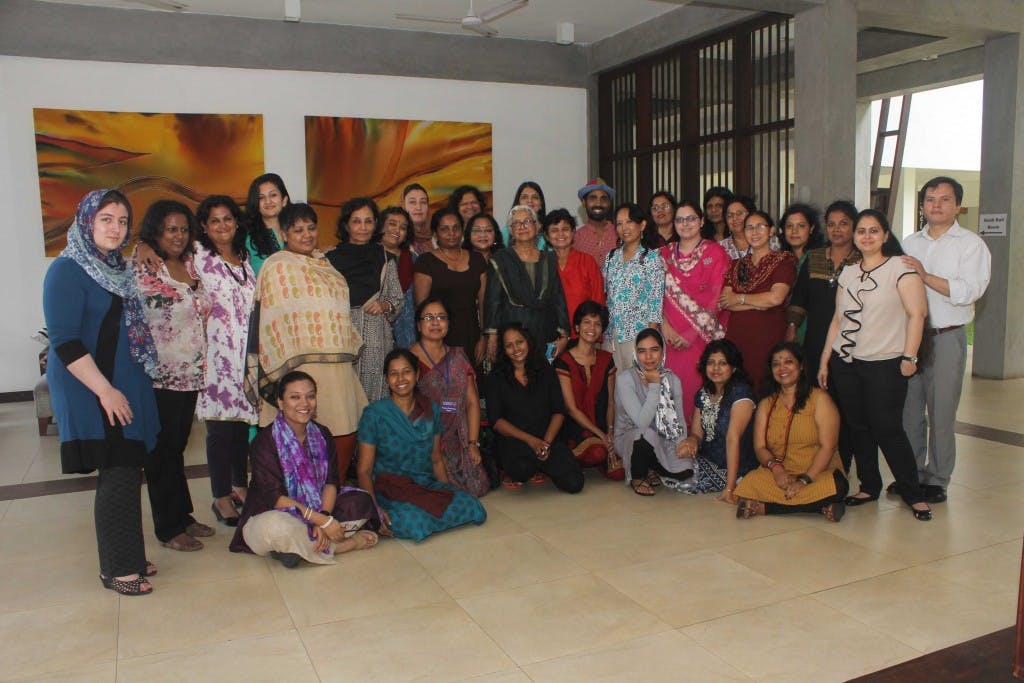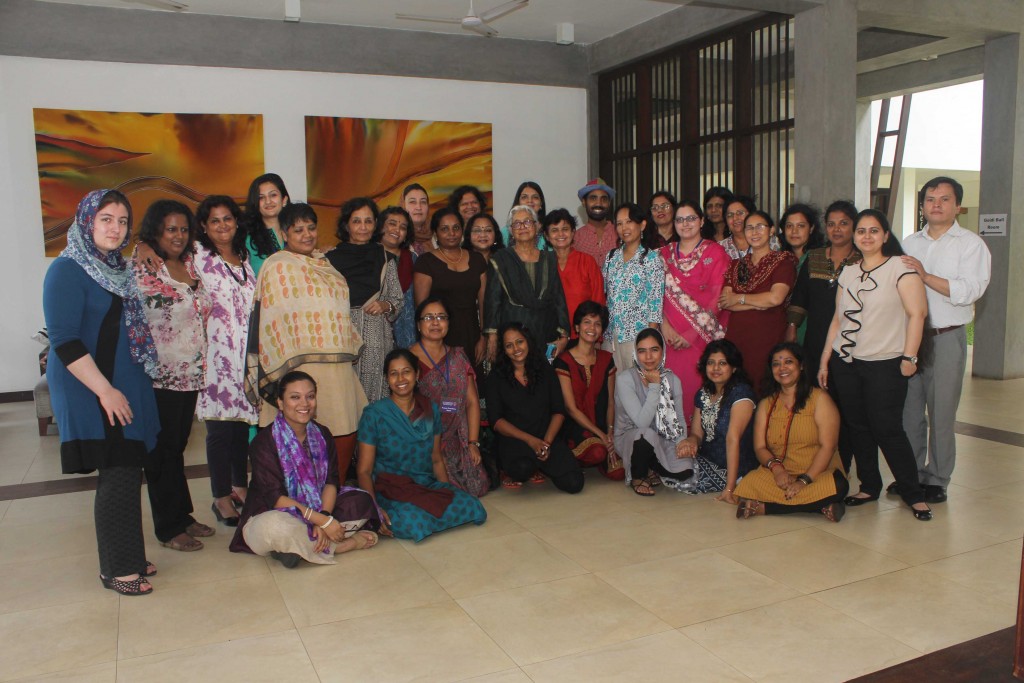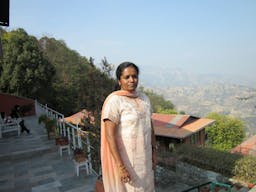South Asian Feminist Alliance for Economic, Social and Cultural Rights (SAFA) is Formed
Jan 21, 2015
Story


South Asian Feminist Alliance for Economic, Social Cultural Rights (SAFA) was formed at the PWESCR’s South Asian Regional Feminist Forum in Negombo, Sri Lanka on August 26th, 2012.
SAFA, a coalition of feminists from South Asian countries that are actively pursuing the realization of women’s human rights in Afghanistan, Bangladesh, India, Nepal,Pakistan and Sri Lanka, brings together leaders trained by PWESCR's 2011 and 2012 Leadership Institutes along with experts from the region with established feminist voices for a collective regional stance and efforts to promote and protect women’s economic, social and cultural rights. In recognition of the diversity of the South Asian region, SAFA members belong to multiple ethnic, religious and social realities and bring with them professional expertise and insights as human rights advocates, lawyers, activists, researchers, policy makers, practitioners, journalists and academics.
SAFA recognizes that the concerns of South Asian women have failed to be adequately represented in national, regional and international economic growth policies and development agendas. Furthermore, it acknowledges that mainstream development as well as the feminist discourse have not integrated the living realities of South Asian women.
SAFA reclaims the space for dialogue on the South Asian perspective by South Asian women themselves. It provides a much needed platform for sharing of information and resources to foster creation of knowledge, tools and learning to further a regional discussion on the advancement of a collective discourse and agenda, especially in the context of economic, social and cultural rights.
The South Asian Feminists gathered in Negombo also developed Negombo Declaration.
NEGOMBO DECLARATION:~
We, feminists from 6 countries of South Asia (Afghanistan, Bangladesh, India, Nepal,Pakistan, and Sri Lanka) from diverse fields including human rights, law, activism, research,policy setting, journalism, and academia met in Negombo from August 24th -26th, 2012 for a Regional Feminist Forum on Women’s Economic, Social and Cultural Rights. We have over these 3 days discussed and deliberated over issues that concern women across the region and we unanimously adopt this declaration.
WE ACKNOWLEDGE AND ADHERE to the Universal Declaration of Human Rights that states that all human beings are born free and equal, in dignity and rights and entitled to the rights and freedoms therein without distinction of any kind, including race, color, sex, language,religion, social origin, birth or other status;
WE REINFORCE AND BELIEVE in the International Covenant on Economic, Social, Cultural Rights.
WE RECOGNIZE THAT:~
South Asia has the largest number of people living in poverty and 70% of the poor are women. This denotes the failure of governments to fulfill their obligation to ensure a life with dignity for all.
Women in the region are food insecure, lack basic health care, access to education,employment opportunities and have little or no social security.
The devastating impacts on women’s lives and livelihoods in the region as a result of:
.the changing global economic situation;
.globalization, privatization, commercialization, militarization, fundamentalism,
and religious extremism;
.conflicts and disasters, both manmade and natural;
. long standing patriarchal norms, values and practices.
. climatic unpredictability and other environmental destruction.
Dispossession of and change of use in resources have negative impacts on women’s
livelihoods.Women, due to prescribed stereotypical gender roles, bear an unfair and unequal
burden in providing food, water, fuel and care for themselves and their families. Lack of infrastructure and poor energy, and technology options add to this burden.
1 The Regional Feminist Forum was hosted by PWESCR (the Programme on Women’s Economic, Social and Cultural Rights). The Forum brought together PWESCR’s Leadership Institute participants and along with few experts
from the region.All women work whether paid or unpaid. Women do a lot of unpaid work within the
household and in family farms and enterprises. Despite its obvious economic and social worth, much of the work that women do remains invisible, undervalued, and underappreciated.Women from social and economically marginalized groups continue to face multiple
discrimination on grounds of caste, race, class, religion, nationality, sexual orientation,ethnicity, language, literacy, disability, and age.
Since national, regional and international economic growth policies and development agendas have not taken due note of the above listed concerns,
WE RECOMMEND THAT:~
Development agendas in our region recognize all women as workers and agents of
economic growth.Development agendas recognize that women traditionally and historically have skills
and knowledge for livelihoods that ensure food security for all.Economic and social policies recognize women as individual rights holders and not just
as members of a family, household, or group. Their marital status should not have an
impact on their entitlements.Women should be engaged in decision-making processes at all levels that impact their
lives.
At the Forum, we, feminists from South Asia prioritized the following issues for knowledge production, mobilization, and policy reform to advance women’s ESCR:~
All women in South Asia work and are therefore entitled to universal social security.
Women, as workers and producers, need to be guaranteed individual access, control,
ownership and management of productive resources for sustainable livelihoods
irrespective of who they are and where they come from.
Negombo, Sri Lanka.
26th August, 2012.
SIGNATORIES:~
1. Afsana Chowdhury Emi, Bangladesh
2. Ashila Niroshine Dandeniya Gamage, Sri Lanka
3. Aysha Adil, Pakistan
4. Beena J, India
5. DushiYanthini Kanagasabapathipillai, Sri Lanka
6. Hasina Jalal, Afghanistan
7. Kripa Basnyat, Nepal
8. Lucky Sherpa, Nepal
9. Maria Virginia Bras Gomes, India
10. Massouda Jalal, Afghanistan
11. M. Mangaleswary Shanker, Sri Lanka
12. Moniza Inam, Pakistan
13. Mohamad Musa Mohamadi, Afghanistan
14. Monijinjir Byapari, India
15. Nalini Rathnarajah, Sri Lanka
16. Namrata Sharma, Nepal
17. Praveer Peter, India
18. Priti Darooka, India
19. Punam Chaudhary, Nepal
20. Rehana Wagha, Pakistan
21. Renu Rajbhandari, Nepal
22. Sejal Dand, India
23. Uma Ramaswamy, India
24. Saba Ismail, Pakistan
25. Sayyida Akhter, Bangladesh
26. Shobha Gautam, Nepal
27. Sithara Shreen Abdul Saroor, Sri Lanka
28. Tamanna Khan, Bangladesh
29. Zakia Naznin, Bangladesh
30. Zohra Faizi, Afghanistan
ENDORSING ORGANISATIONS:~
1. ANANDI, India
2. Aware Girls, Pakistan
3. IHRICON, Nepal
4. Jalal Foundation, Afghanistan
5. Mannar Women’s Development Federation, Sri Lanka
6. Mauj Development Foundation, Pakistan
7. Nariswor, Nepal
8. PWESCR, India
9. Solidarity for Peace, India
10. Women’s Action Network, Sri Lanka
11. Worec Nepal, Nepal




